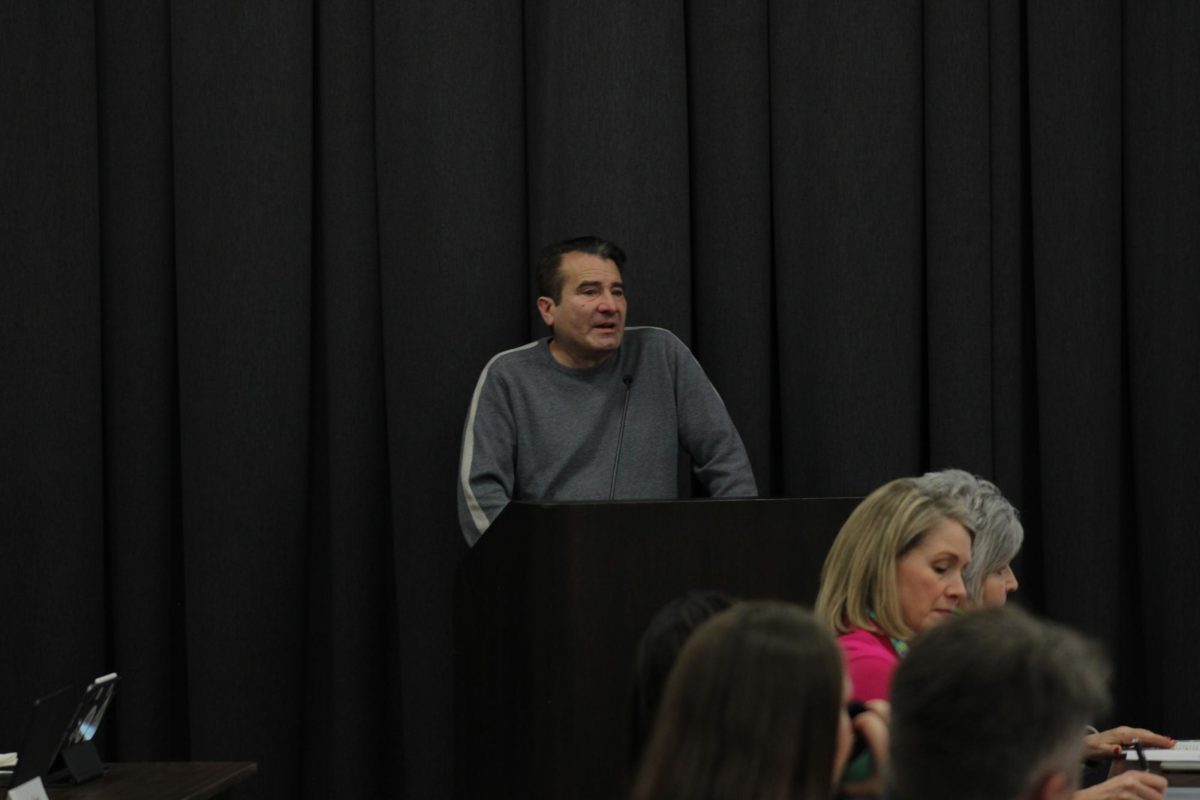Malkmus picks up where Pavement left off
February 28, 2001
|
“Stephen Malkmus” Stephen Malkmus Compare to: Pavement, Arab Strap, Couch **** |
Just before parting ways in 1999, Pavement, the crowned princes of American indie rock, released “Terror Twilight,” an album dominated in style and substance by lead singer-songwriter Stephen Malkmus. Their most focused and strongest record, “Terror Twilight” was full of catchy guitar pop and Malkmus’ eclectic lyrics. And then, just when they had seemingly perfected their sound, Pavement was no more.It didn’t take long, though, for Malkmus, the genius behind Pavement’s innovative and original garage alt rock sound, to venture out on his own and put out the treacherous solo debut album. “Stephen Malkmus” picks up right where “Terror Twilight” left off, and with the exception of a couple of tracks, it could pass as a new Pavement album. It sounds like the album Malkmus always wanted to make with Pavement, but never got around to before the band’s abrupt split. Malkmus’ subtle grin on the cover is like that of an anxious 10-year-old with an honor roll report card trying to hide his enthusiasm from his parents. He knows you’re going to like it, but wants to wait to smile until after you give your approval.From the non-linear and bizarre lyrics to Malkmus’ signature monotone yet passionate vocals to its sing-a-long pop harmonies, this is a fun album.Much like “Terror Twilight,” Malkmus repeatedly delves into fantasy, whether it be a story of an Alaskan going marlin fishing in Florida in “Phantasies,” his experiences on a pirate ship after being kidnapped by Turkish pirates in “The Hook,” or stepping into Yul Brenner’s robotic cowboy character from the movie “Westworld” in “Jo Jo’s Jacket.”The album’s best track, “Church on White,” is a ballad fully equipped with a passionate and energetic guitar solo and is unlike anything ever heard before on a Pavement album. The lyrics are introspective and emotional: “All you ever wanted/was everything/and everything/Plus the truth/I only poured you/Half a life,” a far cry from the rest of the album’s lackadaisical feel.If Malkmus was attempting to create another “Kid A” or “Nevermind,” he failed. Some of the album’s tracks, “Troubbble” and “Deado” sound like forced filler, and “Trojan Curfew” sounds like it could have been left off of Beck’s Mutations.But the chances are Malkmus was trying to make an album full of fun and catchy songs, evident in “Discretion Grove” and “Jenny and the Ess-Dog,” the album’s first two singles. All in all, Malkmus has succeeded in making an album that will please Pavement fans as well as those looking to escape the normality of today’s TRL pop.—Tim Paluch
|
“Boy Hits Car” Boy Hits Car Compare to: At the Drive-In, Course of Empire ****1/2 |
If someone were to head out to Tibet to hang out with the monks and give them a primer course in heavy metal, this album would be the result. Boy Hits Car’s major label debut is full of detuned guitar riffs many would expect from today’s mainstream heavy rockers, but few bands have managed to sound this original. The band has taken elements of middle eastern music, emo and hardcore and melded them into a sound that is completely their own. Singer Cregg (no last name given) plays a 12-string acoustic guitar exclusively throughout the record, making the middle eastern influence obvious and also serving to add to the dynamic contrast during the songs. For several of the tracks, he plays acoustic guitar during the verses which leaves the listener completely unprepared for the sonic onslaught of the chorus.ÿÿÿÿÿÿÿ The album opens with the heavy hitting “The Rebirth,” and never lets up until the final song “Before We Die.” This track teases the listener by building towards what could be another monster chorus, but bringing the volume down after each verse, leaving the listeners ready to take a trip to the mountains and get in touch with their inner selves. But the real gem of the album is “Unheard,” featuring intricate interplay between guitar and bass, a driving drum beat and a killer guitar riff in the chorus. Cregg also distances BHC from other bands with his vocal range. In “Lovecore,” he goes from falsetto singing during the prechorus to guttural screams during the final seconds of the song. While at times his vocals sound similar to At the Drive-In with regard to the pace and energy of his vocals, he actually manages to rhyme the words every now and then and sings with a good deal of melody, something ATDI seems to disregard at times.ÿ Boy Hits Car’s debut is one of the most innovative albums to come out in a long time and definitely one of the most promising of 2001.—Mike Britson








